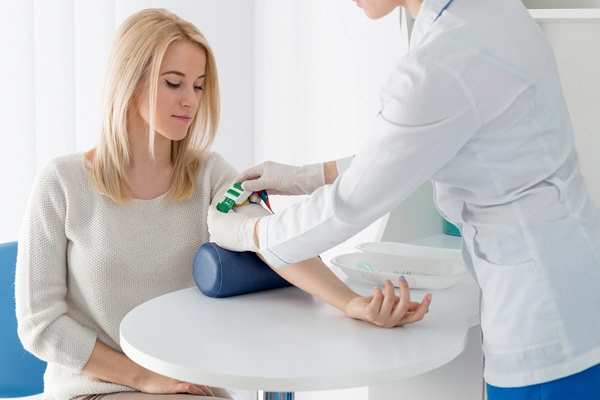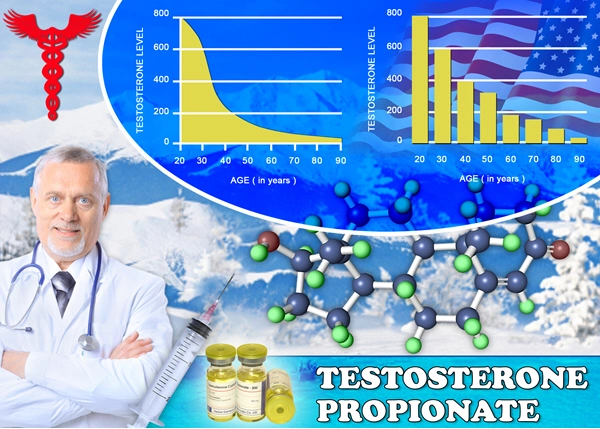Introduction
Testosterone replacement therapy (TRT) has emerged as a pivotal treatment for men experiencing hypogonadism, a condition characterized by abnormally low levels of testosterone. As the prevalence of testosterone deficiency rises among American males, the utilization of TRT has correspondingly increased. However, a significant concern that accompanies this therapy is its potential impact on prostate health. This article delves into the intricate relationship between TRT and prostate health, providing American males with a comprehensive understanding of the associated risks and benefits.
Understanding Testosterone Replacement Therapy
Testosterone replacement therapy involves the administration of testosterone to restore levels to a normal range. This can be achieved through various methods, including injections, gels, patches, and implants. The primary goal of TRT is to alleviate symptoms associated with low testosterone, such as reduced libido, fatigue, and muscle loss. While TRT can significantly improve quality of life, its effects on prostate health remain a topic of ongoing research and debate.
The Prostate and Testosterone: A Complex Relationship
The prostate gland, a small organ located just below the bladder, plays a crucial role in male reproductive health. It produces seminal fluid, which nourishes and transports sperm. Testosterone influences prostate growth and function, and an imbalance in testosterone levels can potentially affect prostate health. Historically, there has been concern that TRT might increase the risk of prostate cancer or exacerbate existing prostate conditions.
TRT and Prostate Cancer Risk: Current Evidence
Numerous studies have investigated the link between TRT and prostate cancer. The consensus from recent research suggests that TRT does not significantly increase the risk of developing prostate cancer in men without a prior history of the disease. However, for men with a history of prostate cancer, the use of TRT remains controversial. The American Urological Association advises caution and recommends close monitoring of prostate-specific antigen (PSA) levels in these patients.
Impact of TRT on Benign Prostatic Hyperplasia (BPH)
Benign prostatic hyperplasia (BPH), a non-cancerous enlargement of the prostate, is another condition that may be influenced by TRT. Some studies have indicated that TRT can lead to a modest increase in prostate size, which could potentially worsen symptoms of BPH. However, other research suggests that TRT does not significantly impact BPH progression. Men considering TRT should discuss their BPH status with their healthcare provider to weigh the potential risks and benefits.
Monitoring and Management Strategies
For American males undergoing TRT, regular monitoring of prostate health is essential. This includes routine PSA testing and digital rectal examinations (DRE) to detect any changes in the prostate. Men with a family history of prostate cancer or existing prostate conditions should be particularly vigilant. Additionally, lifestyle modifications such as maintaining a healthy diet, regular exercise, and avoiding smoking can support overall prostate health.
Balancing Risks and Benefits
The decision to pursue TRT should be made in consultation with a healthcare professional, taking into account individual health profiles and risk factors. While TRT can offer substantial benefits in terms of improved energy, mood, and sexual function, the potential impact on prostate health must be carefully considered. Open communication with healthcare providers and adherence to recommended monitoring protocols can help American males navigate the complexities of TRT safely and effectively.
Conclusion
Testosterone replacement therapy represents a valuable tool in managing hypogonadism, yet its implications for prostate health warrant careful consideration. For American males, understanding the nuanced relationship between TRT and prostate health is crucial for making informed health decisions. By staying informed and proactive in monitoring, men can maximize the benefits of TRT while minimizing potential risks to their prostate health.

- TRT and Mental Health: Benefits, Risks, and Holistic Approaches for American Men [Last Updated On: March 2nd, 2025] [Originally Added On: March 2nd, 2025]
- Economic Impact of Testosterone Replacement Therapy in U.S. Healthcare [Last Updated On: March 16th, 2025] [Originally Added On: March 16th, 2025]
- Navigating Testosterone Replacement Therapy: Benefits, Insurance, and Methods for American Males [Last Updated On: March 17th, 2025] [Originally Added On: March 17th, 2025]
- American Men's Journey with Testosterone Replacement Therapy: Experiences and Insights [Last Updated On: March 17th, 2025] [Originally Added On: March 17th, 2025]
- Testosterone Replacement Therapy: Benefits, Risks, and Holistic Management for Young Men [Last Updated On: March 18th, 2025] [Originally Added On: March 18th, 2025]
- Optimizing TRT for American Men: Diet, Exercise, and Holistic Health Strategies [Last Updated On: March 19th, 2025] [Originally Added On: March 19th, 2025]
- Testosterone Replacement Therapy: Enhancing Male Health and Vitality in American Men [Last Updated On: March 19th, 2025] [Originally Added On: March 19th, 2025]
- TRT: Enhancing Bone Health in American Males with Hypogonadism [Last Updated On: March 19th, 2025] [Originally Added On: March 19th, 2025]
- Testosterone Replacement Therapy: Advances, Personalization, and Future in U.S. Men's Health [Last Updated On: March 20th, 2025] [Originally Added On: March 20th, 2025]
- Enhancing TRT: Nutrition, Exercise, Stress Management, and Holistic Health for American Men [Last Updated On: March 20th, 2025] [Originally Added On: March 20th, 2025]
- TRT Benefits and Prostate Health: Navigating Risks and Monitoring Strategies [Last Updated On: March 20th, 2025] [Originally Added On: March 20th, 2025]
- TRT Enhances Sleep Quality in American Males: Benefits, Mechanisms, and Considerations [Last Updated On: March 21st, 2025] [Originally Added On: March 21st, 2025]
- Testosterone Replacement Therapy: Dosage, Administration, and Monitoring for American Males [Last Updated On: March 22nd, 2025] [Originally Added On: March 22nd, 2025]
- TRT's Impact on Cardiovascular Health in American Men: Risks and Benefits [Last Updated On: March 22nd, 2025] [Originally Added On: March 22nd, 2025]
- Testosterone Replacement Therapy: Benefits, Risks, and Latest Research for American Men [Last Updated On: March 23rd, 2025] [Originally Added On: March 23rd, 2025]
- Cultural Attitudes Toward Testosterone Replacement Therapy Among American Men [Last Updated On: March 23rd, 2025] [Originally Added On: March 23rd, 2025]
- TRT: Enhancing Cognitive Function and Mental Clarity in American Men [Last Updated On: March 23rd, 2025] [Originally Added On: March 23rd, 2025]
- TRT: A Comprehensive Approach to Weight Management in American Males [Last Updated On: March 23rd, 2025] [Originally Added On: March 23rd, 2025]
- Testosterone Replacement Therapy: Benefits, Risks, and Managing Expectations for American Men [Last Updated On: March 24th, 2025] [Originally Added On: March 24th, 2025]
- TRT's Potential to Enhance Mood in American Males: A Comprehensive Overview [Last Updated On: March 24th, 2025] [Originally Added On: March 24th, 2025]
- TRT: A Promising Solution for Joint Health in American Males [Last Updated On: March 24th, 2025] [Originally Added On: March 24th, 2025]
- Hypogonadism in American Males: Understanding TRT Benefits and Risks [Last Updated On: March 24th, 2025] [Originally Added On: March 24th, 2025]
- Managing Testosterone Therapy Side Effects: Strategies for American Males [Last Updated On: March 25th, 2025] [Originally Added On: March 25th, 2025]
- TRT: Enhancing Cognitive Function in American Men - Benefits and Considerations [Last Updated On: March 25th, 2025] [Originally Added On: March 25th, 2025]
- Testosterone Replacement Therapy: Combating Fatigue in American Men [Last Updated On: March 25th, 2025] [Originally Added On: March 25th, 2025]
- Testosterone Replacement Therapy: A Promising Approach to Managing Chronic Pain in Men [Last Updated On: March 25th, 2025] [Originally Added On: March 25th, 2025]
- TRT and Hair Loss: Understanding Risks and Management Strategies for American Men [Last Updated On: March 25th, 2025] [Originally Added On: March 25th, 2025]
- TRT's Impact on Vision: Benefits, Risks, and Research for American Males [Last Updated On: March 25th, 2025] [Originally Added On: March 25th, 2025]
- Testosterone Replacement Therapy: A Promising Approach to Combat Depression in American Males [Last Updated On: March 26th, 2025] [Originally Added On: March 26th, 2025]
- Low Libido in American Males: Understanding and Managing with TRT [Last Updated On: March 26th, 2025] [Originally Added On: March 26th, 2025]
- TRT Benefits for American Males: Enhancing Skin Health and Vitality [Last Updated On: March 26th, 2025] [Originally Added On: March 26th, 2025]
- Testosterone Replacement Therapy: Enhancing Muscle Mass in American Men [Last Updated On: March 26th, 2025] [Originally Added On: March 26th, 2025]
- TRT: Understanding Its Impact on Fertility and Alternatives for American Men [Last Updated On: March 26th, 2025] [Originally Added On: March 26th, 2025]
- TRT's Impact on Immune Function in American Men: A Comprehensive Overview [Last Updated On: March 26th, 2025] [Originally Added On: March 26th, 2025]
- Exploring Testosterone Replacement Therapy: Benefits, Risks, and Considerations for Aging Males [Last Updated On: March 26th, 2025] [Originally Added On: March 26th, 2025]
- Choosing the Right Clinic for Testosterone Replacement Therapy: A Comprehensive Guide [Last Updated On: March 26th, 2025] [Originally Added On: March 26th, 2025]
- TRT: Enhancing Respiratory Health in American Men with Hypogonadism [Last Updated On: March 27th, 2025] [Originally Added On: March 27th, 2025]
- TRT's Impact on Liver Health: Risks and Monitoring for American Men [Last Updated On: March 27th, 2025] [Originally Added On: March 27th, 2025]
- TRT Enhances Injury Recovery in American Males: Benefits and Risks [Last Updated On: March 27th, 2025] [Originally Added On: March 27th, 2025]
- Testosterone Replacement Therapy: Monitoring, Adjustments, and Lifestyle for Optimal Health [Last Updated On: March 27th, 2025] [Originally Added On: March 27th, 2025]
- TRT's Impact on Digestive Health: Benefits, Risks, and Considerations for American Men [Last Updated On: March 27th, 2025] [Originally Added On: March 27th, 2025]
- TRT and Diabetes in American Men: Benefits, Risks, and Lifestyle Integration [Last Updated On: March 27th, 2025] [Originally Added On: March 27th, 2025]
- Testosterone Replacement Therapy: Costs, Benefits, and Considerations for American Men [Last Updated On: March 27th, 2025] [Originally Added On: March 27th, 2025]
- Testosterone Replacement Therapy: Enhancing Life with Lifestyle Changes for American Males [Last Updated On: March 27th, 2025] [Originally Added On: March 27th, 2025]
- TRT: Enhancing Stamina and Vitality in American Males with Hypogonadism [Last Updated On: March 28th, 2025] [Originally Added On: March 28th, 2025]
- TRT: Enhancing Emotional Well-being in American Men with Hypogonadism [Last Updated On: March 28th, 2025] [Originally Added On: March 28th, 2025]
- Testosterone Replacement Therapy: Benefits, Risks, and Methods for American Men [Last Updated On: March 28th, 2025] [Originally Added On: March 28th, 2025]
- TRT: A Promising Solution for Stress Management in American Males [Last Updated On: March 29th, 2025] [Originally Added On: March 29th, 2025]
- TRT Side Effects: Acne, Fertility Impact, Cardiovascular Risks, and More [Last Updated On: March 30th, 2025] [Originally Added On: March 30th, 2025]
- Testosterone Replacement Therapy: Boosting Confidence and Quality of Life in American Males [Last Updated On: March 30th, 2025] [Originally Added On: March 30th, 2025]
- TRT and Blood Pressure: Monitoring and Managing Cardiovascular Health in American Men [Last Updated On: March 30th, 2025] [Originally Added On: March 30th, 2025]
- TRT's Impact on Kidney Function: Risks, Benefits, and Monitoring for American Males [Last Updated On: March 30th, 2025] [Originally Added On: March 30th, 2025]
- TRT's Impact on Cholesterol Levels in American Males: Monitoring and Management Strategies [Last Updated On: March 31st, 2025] [Originally Added On: March 31st, 2025]
- Testosterone Replacement Therapy: Benefits, Risks, and Optimization for American Males [Last Updated On: March 31st, 2025] [Originally Added On: March 31st, 2025]
- TRT's Impact on Blood Sugar: Insights for American Men [Last Updated On: April 1st, 2025] [Originally Added On: April 1st, 2025]
- TRT's Impact on Thyroid Function in American Men: A Comprehensive Analysis [Last Updated On: April 5th, 2025] [Originally Added On: April 5th, 2025]
- TRT: Enhancing Athletic Performance in American Males - Benefits and Risks [Last Updated On: April 8th, 2025] [Originally Added On: April 8th, 2025]
- Testosterone Replacement Therapy: Benefits, Allergic Risks, and Management Strategies [Last Updated On: April 8th, 2025] [Originally Added On: April 8th, 2025]
- Maximizing TRT Benefits: Integrating Therapy with Lifestyle and Medical Treatments for American Males [Last Updated On: April 9th, 2025] [Originally Added On: April 9th, 2025]
- TRT's Impact on Male Fertility: Risks, Reversibility, and Alternatives [Last Updated On: April 9th, 2025] [Originally Added On: April 9th, 2025]
- TRT's Impact on Hearing Health: Insights and Considerations for American Males [Last Updated On: April 9th, 2025] [Originally Added On: April 9th, 2025]
- Testosterone Replacement Therapy: Understanding and Interpreting Lab Results for Optimal Treatment [Last Updated On: April 10th, 2025] [Originally Added On: April 10th, 2025]
- TRT's Impact on Dental Health: Risks, Benefits, and Care Strategies for American Men [Last Updated On: April 10th, 2025] [Originally Added On: April 10th, 2025]
- TRT's Impact on Nail Health: Benefits and Challenges for American Men [Last Updated On: April 11th, 2025] [Originally Added On: April 11th, 2025]
- TRT: Enhancing Eye Health in American Men Through Hormone Therapy [Last Updated On: April 12th, 2025] [Originally Added On: April 12th, 2025]
- Traveling with TRT: A Comprehensive Guide for American Men [Last Updated On: April 12th, 2025] [Originally Added On: April 12th, 2025]
- TRT's Impact on Social Life: Boosting Confidence and Engagement in American Males [Last Updated On: April 13th, 2025] [Originally Added On: April 13th, 2025]
- Legal Aspects of Testosterone Replacement Therapy for American Males: A Comprehensive Guide [Last Updated On: April 15th, 2025] [Originally Added On: April 15th, 2025]
- TRT's Impact on Hand Health: Benefits and Risks for American Men [Last Updated On: April 15th, 2025] [Originally Added On: April 15th, 2025]
- Testosterone Replacement Therapy: Benefits and Social Implications for American Males [Last Updated On: April 16th, 2025] [Originally Added On: April 16th, 2025]
- Exploring the Psychological Impacts of Testosterone Replacement Therapy for American Men [Last Updated On: April 17th, 2025] [Originally Added On: April 17th, 2025]
- TRT: Boosting Work Performance and Vitality in American Males [Last Updated On: April 17th, 2025] [Originally Added On: April 17th, 2025]
- TRT's Impact on Artistic Expression in American Males: Creativity and Risks [Last Updated On: April 17th, 2025] [Originally Added On: April 17th, 2025]
- TRT's Impact on Neck Health: Considerations for American Men [Last Updated On: April 17th, 2025] [Originally Added On: April 17th, 2025]
- Ethical Considerations in Testosterone Replacement Therapy for American Men [Last Updated On: April 18th, 2025] [Originally Added On: April 18th, 2025]
- TRT's Impact on Chest Health: Benefits, Risks, and Management in American Men [Last Updated On: April 19th, 2025] [Originally Added On: April 19th, 2025]
- TRT Benefits for American Males: Enhancing Foot Health and Mobility [Last Updated On: April 19th, 2025] [Originally Added On: April 19th, 2025]
- TRT's Impact on Back Health in American Males: Benefits and Considerations [Last Updated On: April 20th, 2025] [Originally Added On: April 20th, 2025]
- Testosterone Replacement Therapy: Benefits, Risks, and the Need for Medical Supervision in the U.S. [Last Updated On: April 21st, 2025] [Originally Added On: April 21st, 2025]
- TRT: Enhancing Abdominal Health and Reducing Fat in American Men [Last Updated On: April 21st, 2025] [Originally Added On: April 21st, 2025]



List of USA state clinics - click a flag below for blood testing clinics.
Word Count: 588



















































